|
LAST SUPPER - PAGE 11
Heracles Twelve Labors
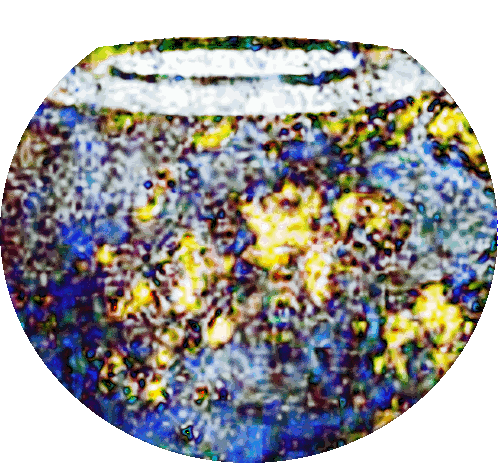
Greek |
- The Oracle of Delphi, Pythia, assigned the Twelve Labors, a set of tasks, imposed on
Heracles as penance for the murder of his
own family.
- The tasks had to be performed for Eurystheus,
the king of Tiryns and Argos (Mycenae).
- Heracles had the
crown stolen by Hera when she caused Eurystheus to be born two
months prematurely after Zeus announced the first born would
be the next king.
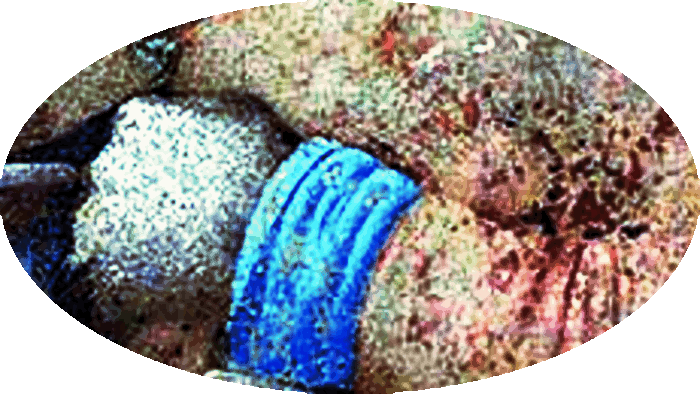
Royal arm chair |
- Heracles had to perform the tasks for
Eurystheus even though the crown was not rightfully his and he
was not as strong or as brave as Heracles.
- This
subordinate relationship was humiliating to Heracles which was
undoubtedly the intent of the punishment.
- Additionally,
Hera, who hated Heracles because Zeus cheated on her and
Heracles was born to a mortal woman, schemed behind the scenes
and set up the tasks with Pythia.
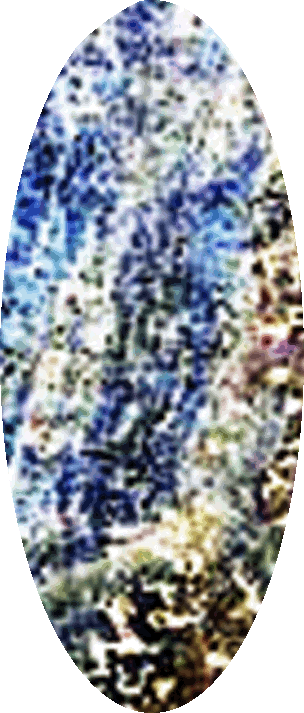
King Eurystheus |
|
- Originally there were
ten tasks, however, Eurystheus assigned Heracles two extra
tasks.
- The first six of Heracles’ labors took place in the Peloponnese
and the last six labors took place throughout the Greek world.
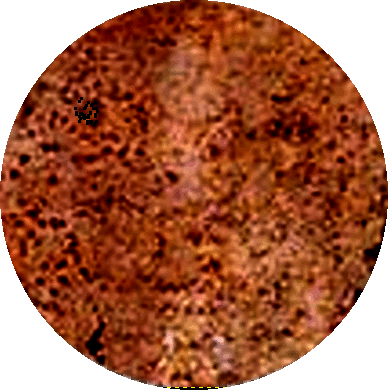
Nemean Lion |
- The first task was to slay the Nemean Lion that had been
terrorizing the region of Nemea.
- It was no ordinary lion
because it was the offspring of Typhoeus.
- Heracles
tracked the lion to its cave, blocked the entrance, and shot
it with his bow and arrow but to no avail.
- The arrows
bounced off the lion's hide.
- Heracles was so angered, he
strangled the lion with brute force and returned to Tiryns
where he gave the hide to Eurystheus.
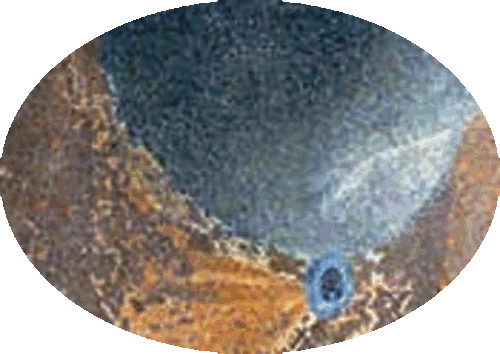
Heracles lion cape |
- Eurystheus, who
didn't want the hide, became very afraid of Heracles because
he didn't expect him to survive.
- Heracles took the lion's
hide, skinned it, and made a cloak, with a lion's head helmet
attached which became his trademark.
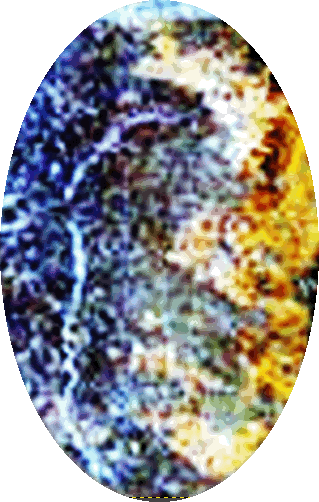
Lernaean Hydra |
- Task two was to slay the nine-headed Lernaean Hydra
fire-breathing sea monster that had several snake-like heads.
- Hera hated Heracles so much she added the labor to the list
because she believed the hydra was invincible and would
destroy his hometown.
- Heracles went to the hydra den in a swamp near Lerna and quickly
severed one of the heads with his sword.
- As soon as he
cut off the hydra head, two more grew.
- Heracles called on
Iolaüs, his nephew, a charioteer, to bring a burning branding iron so
he could cauterize the neck to prevent new heads from growing.
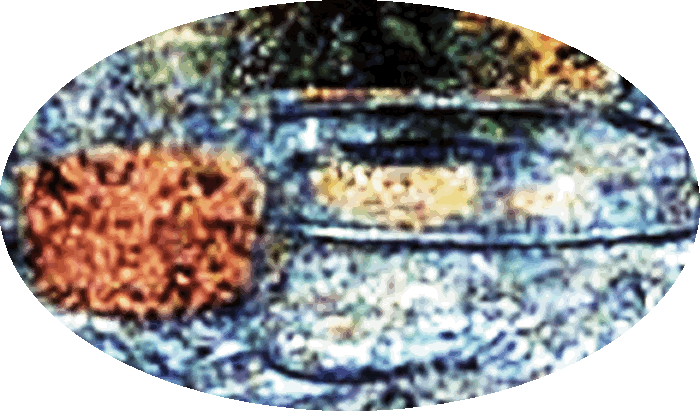
Heracles sword and Iolaüs branding iron |
- He chopped off all the heads and Iolaüs cauterized the necks
until only one head, which was immortal, survived.
- Heracles
took the remaining head and buried it under a rock and then
dipped all his arrows in the hydra's poisoness blood to
guarantee anyone he hit with an arrow would die.
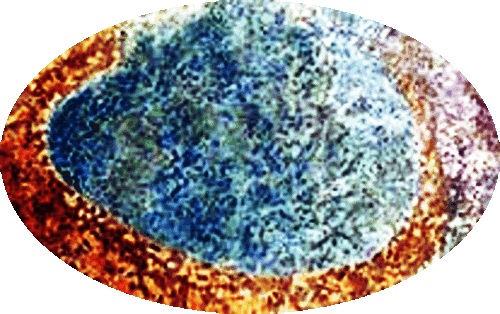
Golden Hind of Artemis |
- The third task was to capture the Cerynitian Golden Hind,
a deer with golden horns, sacred to Artemis.
- Because the
deer was sacred, Heracles had to capture it live.
- He
tracked the deer for a year, which was the fastest in the
world, around the forests of the Peloponnese.
- He finally
captured the deer after a year in Arcadia by sneaking up from
behind.
- On his way back to Tiryns with the deer, he ran
into Artemis who was not happy that her sacred deer was so
constrained, but Heracles agreed he would release it as soon as
possible.
|
Artemis / Diana |
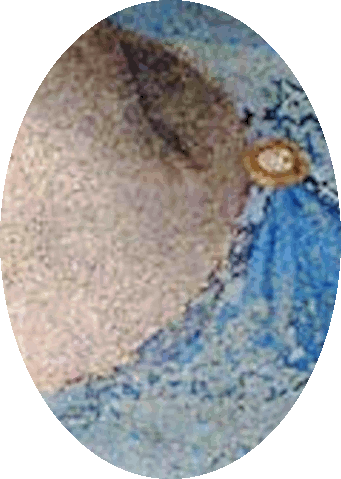
Goddess of chastity, hunting, and the moon |
- Artemis was the daughter of Zeus and Leto and the twin
sister of Apollo.
- She was the most popular goddess with
the rural populace as she was associated with wild nature, and
danced with nymphs (dryads) in the mountains, forests and
marshes.
- She was one of only three virgin goddesses, next to Athena
and Hestia.
- She embodied wilderness and the sportsman's
ideal, so in addition to hunting, she also protected wildlife,
especially the young.
- Artemis, like her brother Apollo,
was the bringer of sudden death and disease; she targeted
females and Apollo went after males.
- She was depicted as
a young maiden with a hunting bow and a quiver of arrows.
-
Jealous goddess and wife of Zeus, Hera, also hounded her
mother Leto until she found refuge on the floating island of
Delos.
- As a young girl she told her she wanted to remain
a virgin so he granted her a chastity belt.
|
Moon |

Full |
- In astrology, the Moon rules the 4th house (home) and centers around
parents, home, family, foundation and ancestral patterns.
-
It is
linked to zodiac sign Cancer.
- Encompasses a wide range of associations from your ancestral roots to old age, endings and your final resting place.
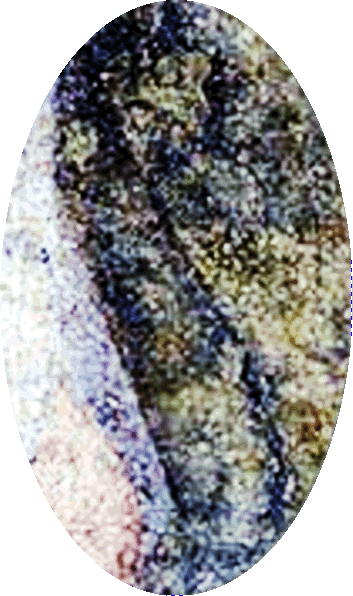
Erymanthian Boar |
-
The fourth labor was to capture the Erymanthian Boar who was
ravaging the region around Mount Erymanthus and damaging crops.
- Along the way, Heracles, encountered Pholus, a centaur, who
are usually not very personable, and
shared some wine with him.
- Other centaurs, who are also known
for not being able to hold liquor, noticed the wine drinking
and went crazy and attacked Heracles and Pholus in order to
steal their wine.
- Heracles and Pholus managed to chase the centaurs
away, but in the process, Pholus accidently dropped one of
Heracles poison arrows on his foot and died in agonizing pain.
- Heracles was famous for the fact that so many close to him
ended up dying.
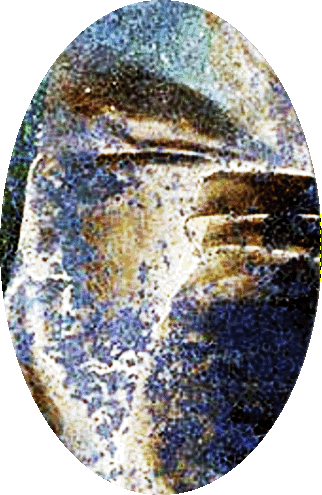
The king hiding in
Pithos jars |
- Heracles drove the boar into deep snow and overtook
it.
- He brought the boar back to Tiryns to show to King
Eurystheus who was so frightened by the beast he ended up
hiding in a storage jar (pithos).
- At this point, Jason
was looking for heroes on his journey to find the Golden
Fleece, so Heracles took a break from the Twelve Labors.
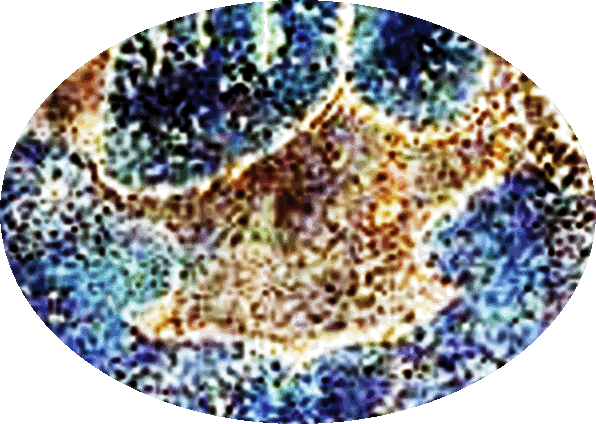
Golden fleece |
-
He did not make the journey to Colchis with the rest of the
Golden Fleece crew because he was left behind in Mysia while
searching for his lover, Hylas.
- After he was unable to
find Hylas, he returned to Tiryns to continue working on his
tasks.
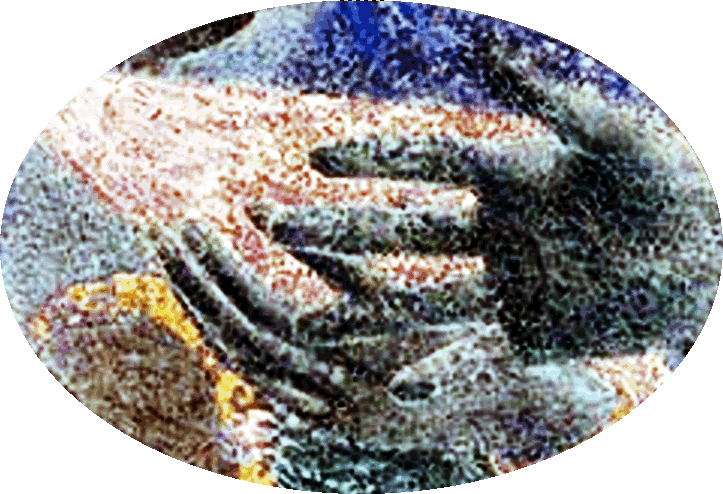
Cleaning the Augean stables |
- The fifth task was to clean the Augeian stables in
a single day for King Augeias, of Elis.
- The stables,
which were given to the king by his father, Helios, were
massive, housing 3,000 cattle who had poisoned faeces, and had never been cleaned.
- There was several years of
dung inside.
- Heracles worked a deal with the king that he
would clean out the stable in one day if the king gave him ten
percent of his cattle.
- King Augeias agreed, and Heracles went
to work.
- Heracles diverted two rivers so they flowed through
the stables and cleaned them out in a few hours.
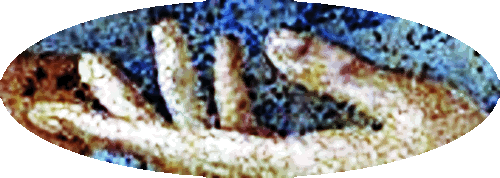
Leaving emptyhanded |
- The king
was outraged as he had not planned on paying Heracles because
he never believed he could accomplish the task in one day.
- Heracles went back to Tiryns emptyhanded but he did complete
the task.
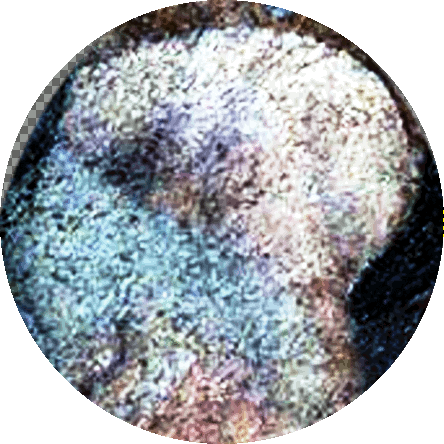
Stymphalian Birds |
|
- The sixth task was to clear away the Stymphalian Birds
because Lake Stymphalus in norther Arcadia was overrun by them.
- The birds
were man-eating.
- Heracles crashed some large shields
and used a rattle given to him by Athena, and the noise caused the birds to take flight.
- Once they were in the air, he was able to pick them off with
his arrows one by one.
- He brought the dead birds back to
King Eurystheus.
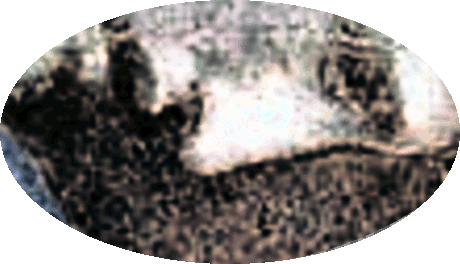
Cretan Bull |
- The seventh task he needed to accomplish was to capture
the Cretan Bull who was the father of the Minotaur, who was
laying waste to the lands in Crete.
- The bull embodied
the rage of Poseidon because it was a gift to Minos and he
planned on sacrificing it himself.
- Heracles
was able to trap the bull live and took it back to Tiryns,
carrying it on his shoulders,
where of course, King Eurystheus was afraid of it.
- The
king didn't want the bull so Heracles set it free.
- The
bull wandered into Athens and the god Theseus later killed it
in one of his heroic feats because it was terrorizing the city.
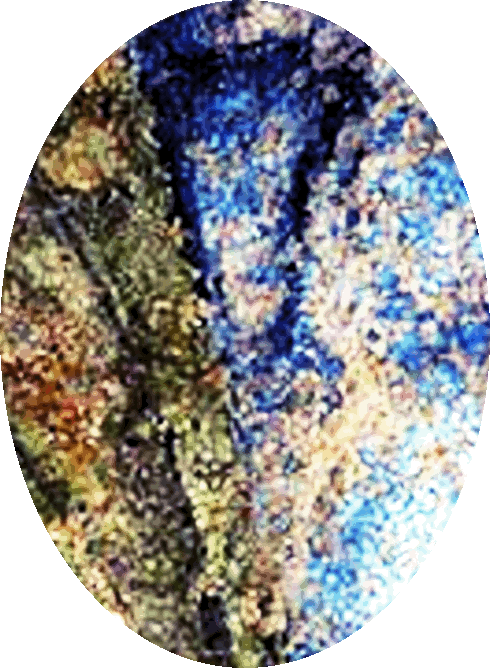
Mares of Diomedes |
- The eighth labor was for Heracles to retrieve
(steal) the man-eating Mares of Diomedes, who was the king of a Thracian tribe called the Bistones, and bring them back to him
to Mycenae.
- According to Apollodorus, Hercules sailed with a
group of volunteers across the Aegean Sea to Bistoni.
-
With the help of his lover, Abderus, Heracles stole the mares,
who had been trained by their owner to feed on human flesh,
from their stable and herded them to the sea.

Sea |
- Diomedes'
men were in pursuit, so Heracles left Abderus to tend the
mares.
- He fed King Diomedes to the mares and then binded
their mouths shut.
-
When he returned to the stable, Heracles discovered that the
mares had eaten most of Abderus.
- Heracles carefully
buried his lover and placed the mares in a ship and took them
back to King Eurystheus who was afraid of the mares and didn't
want them in the city.
- Heracles set the mares free and
they were eaten by wild animals on Mount Olympus.
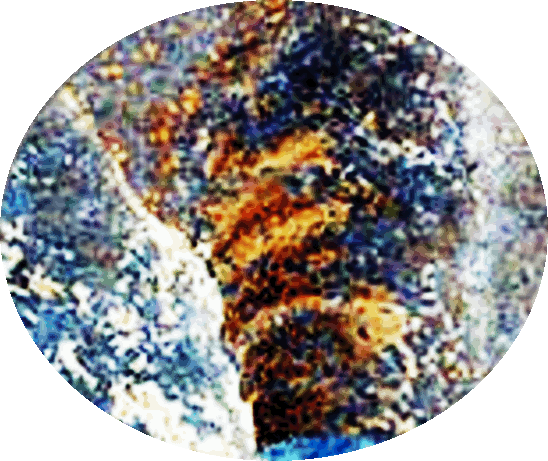
Golden Girdle of Hippolyta |
- The ninth labor was to obtain the girdle (belt) of Hippolyta, Queen of the
Amazons.
- The girdle was a gift to Hippolyta from her
father, Ares.
- The Amazons were female warriors who lived in
Themiscyra on the southern coast of the Black Sea.
-
Heracles was joined by Theseus and they set off together to
find the Amazons.
- When they reached Themiscyra, Hippolyta
came aboard their ship to meet with them and she agreed to
give them her girdle.
- Hera got involved and was angered
and did not want this task to go off so easy, so she disguised
herself as an Amazon and came down from Olympus.
- Hera
told the Amazons that Heracles was kidnapping their queen and
they started to fight the heroes.
- The heroes were angered
because they thought Hippolyta set them up, so they murdered
her and left.
- They took Hippolyta's sister, Antiope, with
them and the girdle, however, some believe that Hippolyta
didn't die and the heroes took her with them, not her sister,
and she became the mother of Theseus son, Hippolytus.
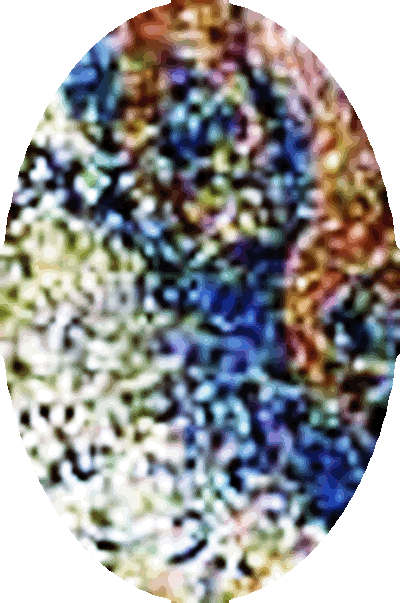
Geryon |
- Task ten was to obtain (steal) the cattle who
belonged to the monster Geryon,
who was the King of Erytheia.
- The cattle
were guarded by a two-headed watch dog named Orthus, which
belonged to Geryon.
- Geryon had three heads and
three upper bodies as well as six arms and legs.
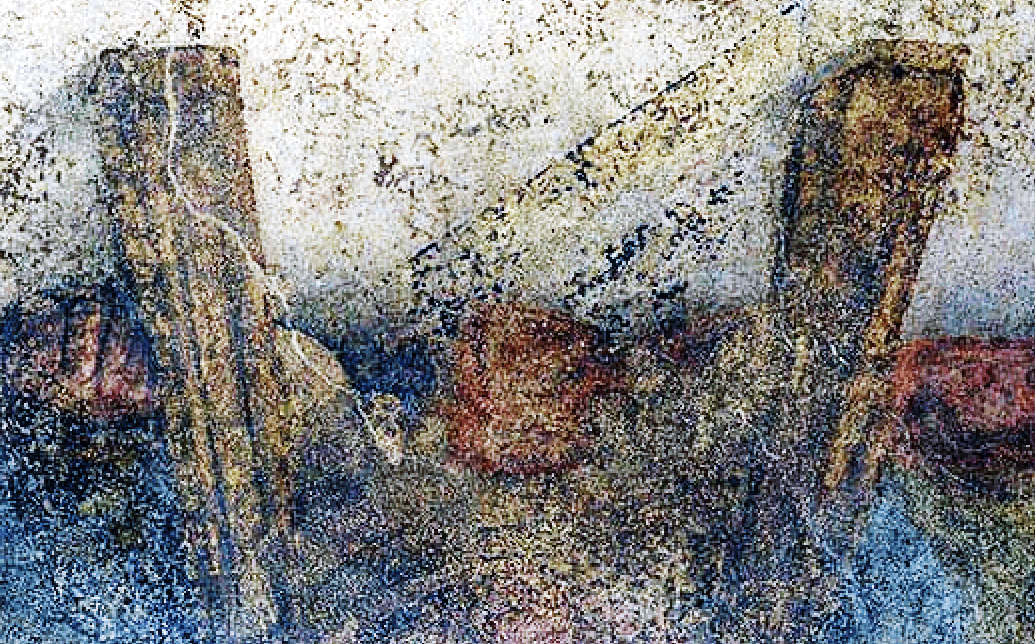
Pillars of Heracles |
-
Heracles traveled through Africa to Spain, where he crossed
the Strait of Gilbraltar, where he set up large rocks on
either side called the pillars of Heracles.
- The sun beat
down on Heracles and annoyed, he drew his bow and pointed it
at the sun, chastising it.
- Helius, the sun god, was
amused with this stunt, so he lent his golden cup to Heracles
to use as a boat to take him the remainder of the way to
Erytheia.
- On the way, Heracles found Orthus, the herdsman
Erytion and Geryon; he killed the first two with his club and
the third with a poisoned arrow.
- When he arrived, Heracles handed over Geryon
and Orthus.
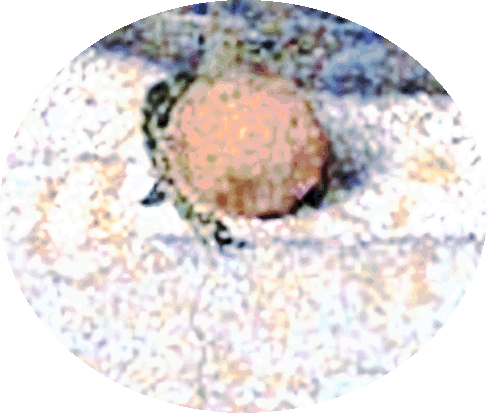
Golden apples of Hesperides |
- The eleventh labor was to steal the golden apples of the Hesperides
which were protected by Hera.
- The Hesperides were nymphs who lived in Libya near the mountains where Atlas held up the world (now called the Atlas Mountains).
- They tended a garden where thet grew golden apples which
were protected by Ladon, a hundred-headed dragon, who was
placed there by Hera.
- First, he had to ask Nereus where
the garden was.
- Heracles passed by the Caucasus Mountains and shot the eagle that had long tortured Prometheus, eating at his liver, freeing him from his bonds.
- Prometheus was so grateful, he gave Heracles good advice
about how to retrieve the apples.
- He told him to ask
Atlas, his brother, to retrieve the apples, who was happy to
do so, however, he had no intention of returning to his post
holding up the globe.
- Atlas offered to take the apples to
King Eurystheus, intending never to return.
|
Atlas |
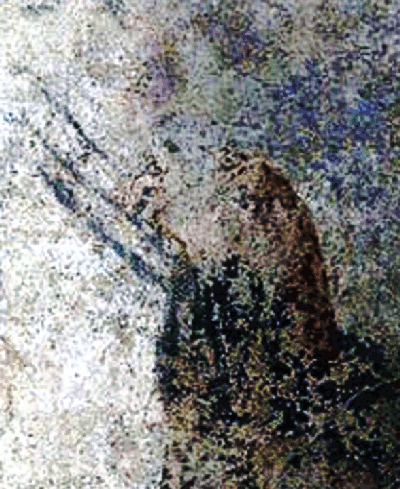
Holding up the heavens (not the earth) |
- Heracles knew
that Atlas didn't plan on returning so he asked Titan to hold
up for just a minute so he could place a pad on his shoulder
to soften the weight.
- Atlas took the weight of the
heavens
on his shoulders again and Heracles took the apples back to
Tiryns.
- He showed them to the king and then Heracles gave
the apples to Athena, his half-sister, and she returned them
to the Hesperides.
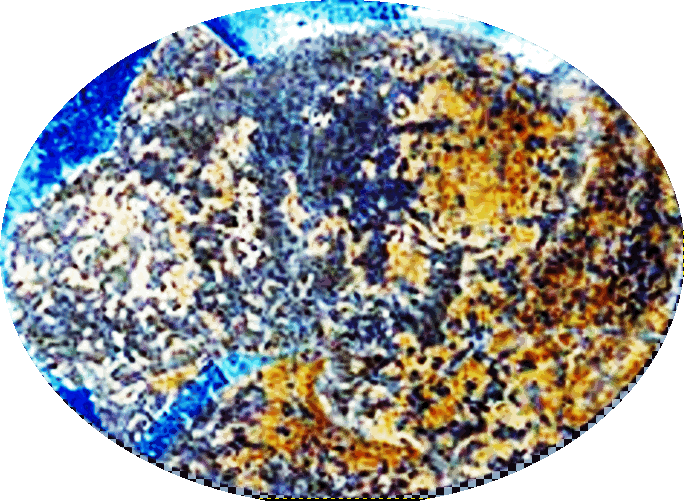
Cerberus |
- The twelfth and final labor was to capture and bring back Cerberus,
the three-headed dog live, from Hades, and was the riskiest
task.
- Eurystheus assigned it last because he thought it
impossible.
- Heracles began this labor by being initiated into the Eleusinian Mysteries
and Hermes took him down into the Underworld.
- In Hades,
he saw his friends Theseus and Peirithoüs, stuck to chairs and
they begged Heracles to set them free.
- He managed to pry
Theseus loose and he began to free Peirithoüs but the earth
began to shake, so Heracles stopped.
- Heracles and Theseus
were both allowed to leave, but Hades insisted that Peirithoüs
stay behind.
- When Heracles went to Hades palace, he asked
for permission to take Ceraberus with him and Hades agreed as
long as Heracles didn't use weapons to capture him.
-
Heracles grabbed the hell-hound and dragged him all the way to
Tiryns.
- King Eurystheus was so frightened when he saw
the beast, he ordered Heracles to take him back to Hades.
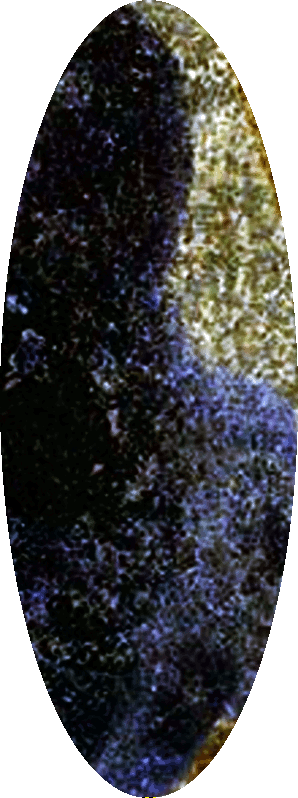
Man in black in Hades |
- Heracles completed the tasks and was free and also was
immortal.
-
The rivalry between Eurystheus and Heracles continued for the rest of the two men’s lives, even beyond.
- Even after Heracles’ death, Eurystheus hounded his children and descendants until they defeated and killed him in battle.
|
Hades / Pluto |
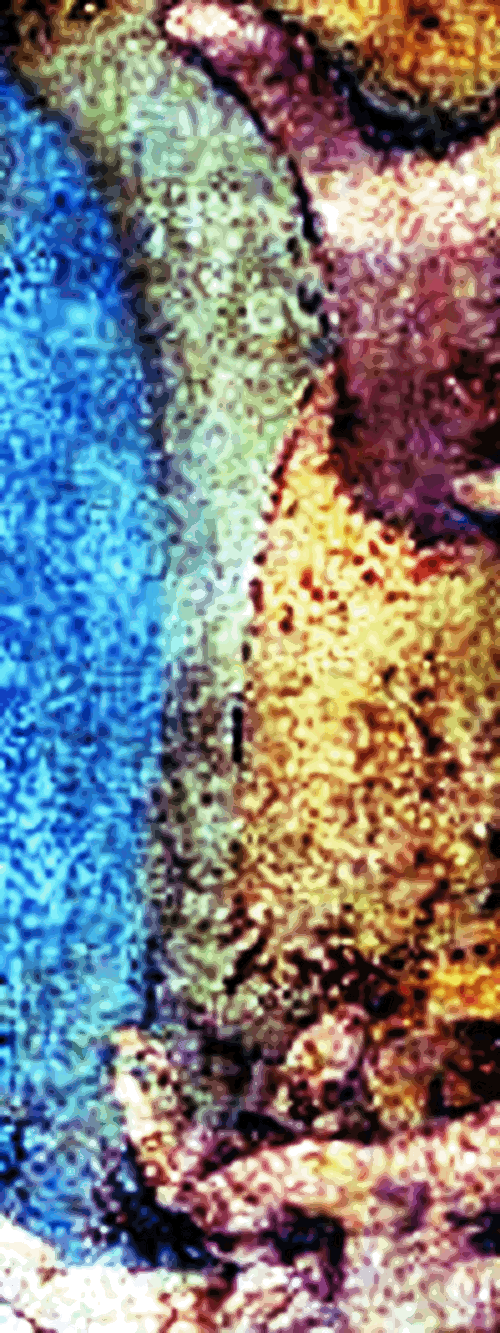
Heracles battles in Hades |
- Hades, the unseen one, was the god of the dead and the
Underworld and his Roman equivalent was Pluto, who rules both the underworld and distributes riches from below
such as metals.
- He was
the eldest son of Cronus and Rhea.
- Hades, along with his
brothers, Zeus and Poseidon, defeated his father's generation
of gods, the Titans, in the Titanomachy, a divine war.

Underworld |
- The three brothers held joint rulership over the cosmos; Hades received the
underworld, Poseidon the sea, Zeus the
sky, and all three received the use of Gaia, the earth.
-
He is typically shown with Cerberus, the three-headed dog, of
the underworld, standing at his side.
- His symbols are a
bident (fork) and helm, which was his cap of Invisibility.
- Hades first wife was Persephone who he received through an
abduction he performed for Zeus.
- Hades ruled the dead and
had full authority; his primary duty was making sure no one
ever left his realm.
- Hades was the jailkeeper and did not
judge souls; Thanatos, the god of peaceful demise, brings
people to the underworld, and violent end was the domain of Thanatos' blood-craving sisters, the Keres, spirits of slaughter and disease.
He strictly forbade his subjects to leave his domain and would become quite enraged when anyone tried to leave, or if someone tried to steal the souls from his realm.
His wrath was equally terrible for anyone who tried to cheat death or otherwise crossed him, as Sisyphus and Pirithous found out to their sorrow. While usually indifferent to his subjects, Hades was very focused on the punishment of these two people; particularly Pirithous, as he entered the underworld in an attempt to steal Persephone for himself, and consequently was forced onto the "Chair of Forgetfulness"
(Wikipedia)
|
|
Pluto |
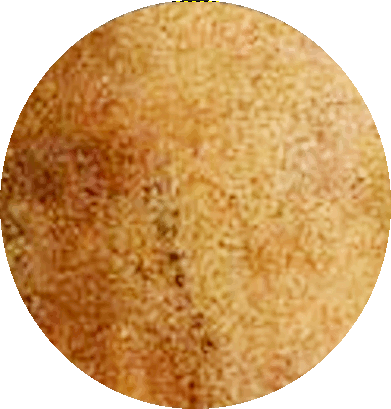
9th planet from the Sun |
- In astrology, Pluto (sex) rules the 8th house and deals with merging, intimacy, occult, rituals and transformation.
Encompasses shared resources and things like inheritance, and all types of support (financial, emotional and physical) you get from others.
- Mars also rules the 8th house and tied to zodiac sign
Scorpio.
|
Persephone |
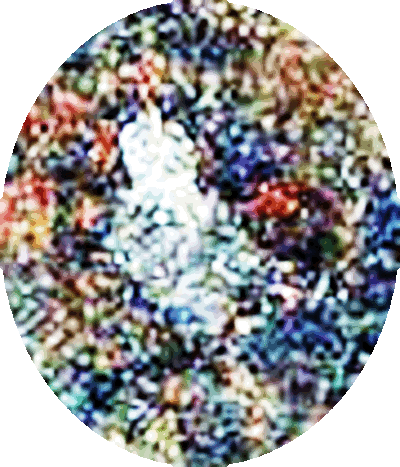
Pomegranate |
- Persephone is the Goddess of the Underworld and goddess of vegetation.
- She was the daughter of Zeus and Demeter, goddess of bountiful harvest,
who was Zeus' consort before he married Hera.
- Her symbols are the pomegranate, seeds of grain, flowers and deer.
- Hades asked his brother Zeus, her father, if he could marry
her and when he received his approval, Hades abducted
Persephone and took her to the underworld.
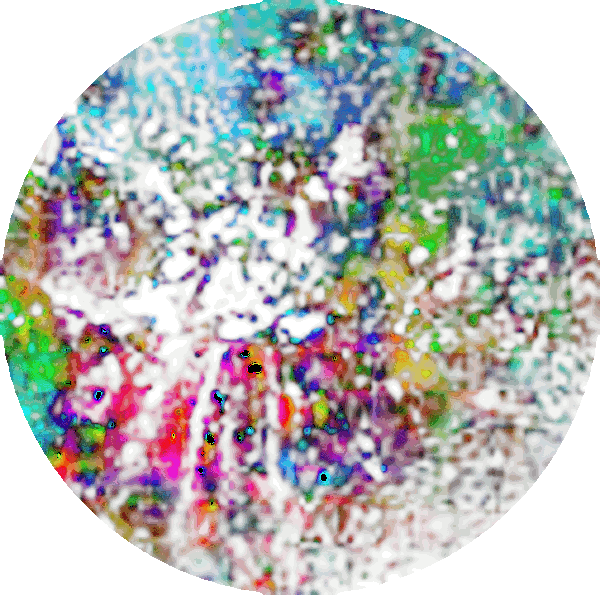
Field of wildflowers |
- She stooped to pluck a narcissus from a field of wildflowers near her home
and the earth opened up and Hades reached up and pulled her
into his Underworld kingdom and made her queen.
- Although
she did grow to love Hades, she remained homesick for her mother and the life she’d known on earth.
- Demeter, consumed by grief and sorrow, demonstrated her
outrage by withholding her blessing from the earth until
Persephone was returned to her.
- Droughts followed and fields lay barren, mankind suffered
from famine.
- Zeus finally relented and sent the god Hermes to bring the young goddess Persephone back to her mother.
- Persephone was homesick, but she was enjoying her life with
Hades as his queen.
|
|
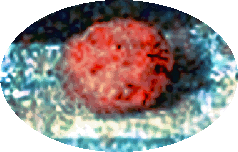
Pomegranate fruit |
- She knew that anyone who ate in the Underworld would
never be able to return to the world above, so she ate 7 seeds
from a pomegranate that Hades gave her.
- She was soon
reunited with her mother, but she knew it was only temporary
because of the rule she broke but it opened up the possibility
for compromise.
- Hermes made a deal where she was allowed
to stay in Hades half the year in the winter months, and then
return to the world above in the spring for half a year.
|
Sun |
Moon |
Stars |
|
 |
 |
 |
|
Signed by Leonardo DaVinci
A new
day!
As above, so below. |
|
|
Our life is made by the death of others.
Leonardo DaVinci

|